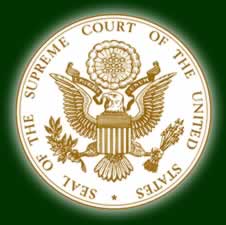| June
23: In a divided decision, the Court ruled Monday that Congress can force
the nation’s public libraries to equip computers with anti-pornography
filters. The court rejected arguments that the requirement violates
library patrons’ First Amendment rights. Libraries already exclude
pornography from their shelves, plus Congress can attach strings to federal
funding, the court noted. Chief Justice William Rehnquist wrote the court’s
opinion wherein he tied Congress’ funding of libraries to the case:
“ Congress has wide latitude to attach conditions to the receipt of
federal assistance in order to further its policy objectives.” Rehnquist
was joined by Justices O’Connor, Scalia, and Thomas with Justices
Kennedy and Breyer in agreement, however they stated that adults should
be able to ask librarians to disable the filters. |
 |
|
In the dissent were Justices Souter, Ginsburg, and Stevens. Souter wrote
in his dissent that local decision-makers, not the federal or state government,
are “in the best position to judge local community standards for
what is and is not obscene.” More than 95% of the nation’s
libraries offer Internet access. By 2000, 7% used anti-pornography filters.
In 2002, libraries received $58.5 million in federal discounts to buy
Internet access and $149-million in technology grants. Rep. Ernest Istook
(R-Oklahoma), the law’s main author, said libraries “can offer
unfiltered access. They just won’t get federal dollars.”
|


